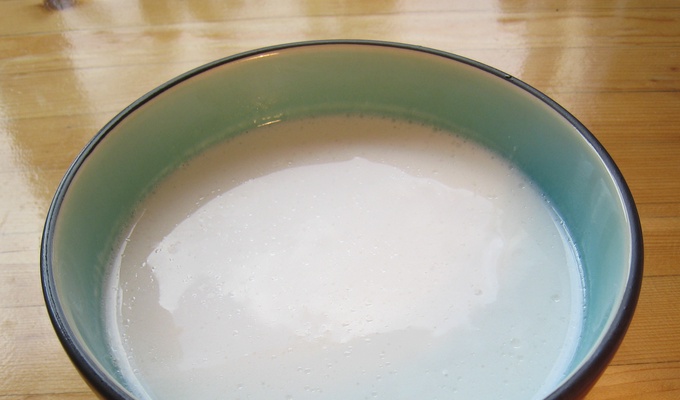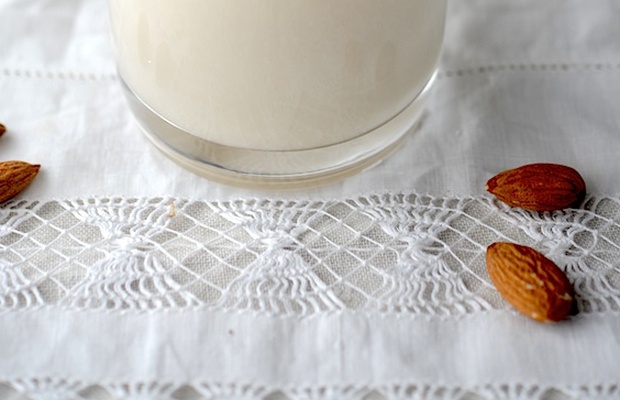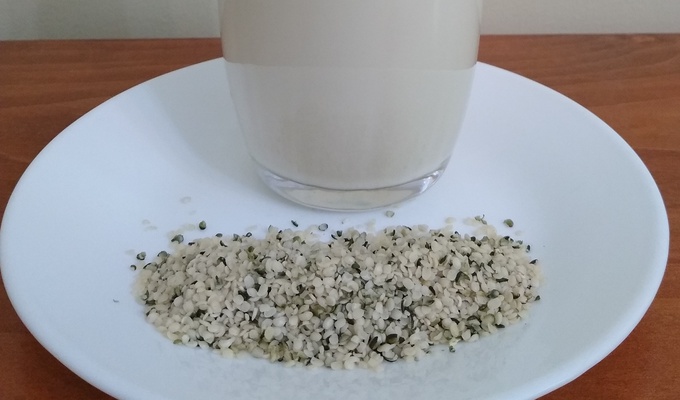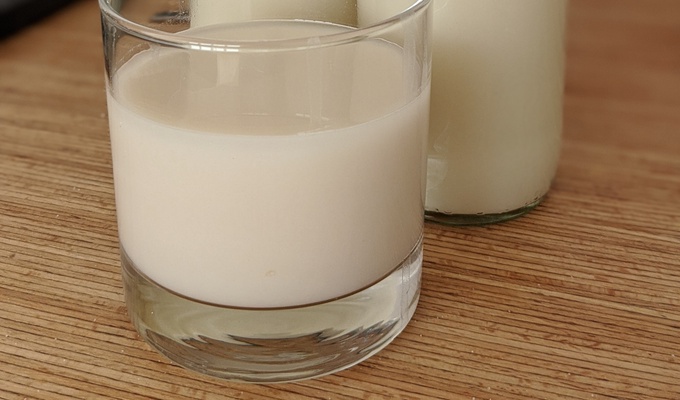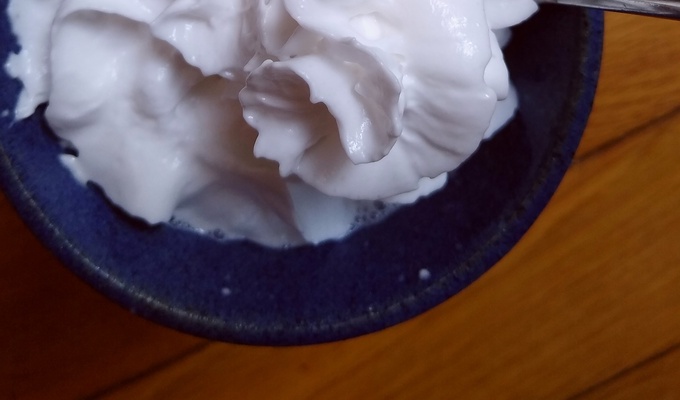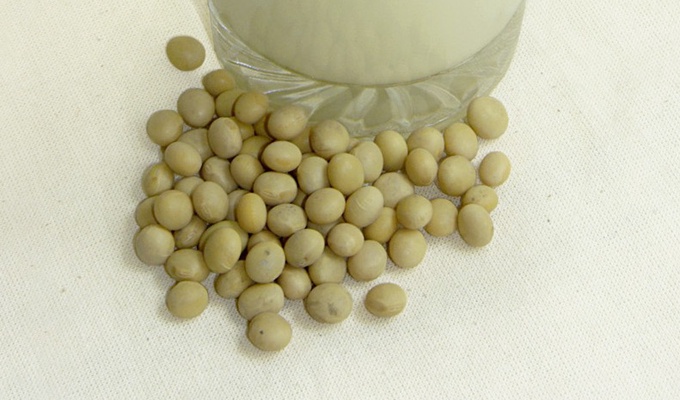Plant milk is a plant beverage with a color resembling that of milk. Plant milks are non-dairy beverages made from a water-based plant extract for flavoring and aroma. Plant milks are consumed as alternatives to milk, and often provide a creamy mouthfeel. There are about 17 different types of plant milks; almond, oat, soy, and coconut are the highest-selling worldwide. Production of plant-based milks, particularly soy and oat milks, can offer environmental advantages over animal milks in terms of greenhouse gas emissions, land and water use.
Plant-based beverages have been consumed for centuries, with the term "milk-like plant juices" used since the 13th century. Today they are frequently referred to as plant-based milk, alternative milk, non-dairy milk or vegan milk. For commerce, plant-based beverages are typically packaged in containers similar and competitive to those used for dairy milk, but cannot be labeled as "milk" within the European Union.
Across various cultures, plant milk has been both a beverage and a flavourful ingredient in sweet and savory dishes, such as the use of coconut milk in curries. It is compatible with vegetarian and vegan lifestyles. Plant milks are also used to make ice cream alternatives, plant cream, vegan cheese, and yogurt-analogues, such as soy yogurt. In 2021 the global plant milk market was estimated to reach US$62 billion by 2030.
